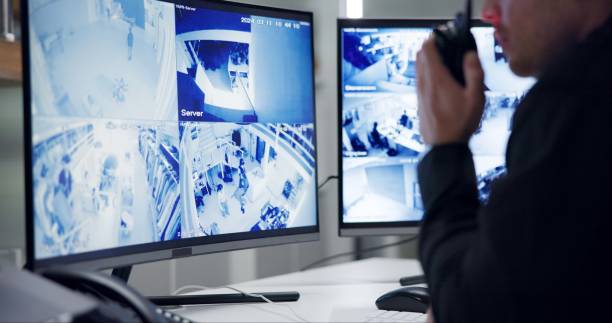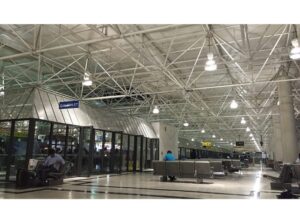In Dubai’s fast-growing industrial sector, control rooms play a vital role in ensuring smooth operations. These critical spaces require specialized furniture that supports both function and comfort. As operations run 24/7, the demand for ergonomic control room furniture continues to rise. Understanding the trends in this space helps businesses in Dubai build more efficient and health-focused environments.
Why Ergonomics Matter in Control Rooms
Health and Safety of Operators
Control room staff often work long hours, sometimes in high-pressure situations. Poor posture, repetitive motion, and eye strain are common issues. Ergonomic furniture helps reduce these risks by supporting natural movement and proper alignment. Adjustable chairs, sit-stand desks, and monitor arms improve comfort and reduce fatigue.
Increased Focus and Productivity
When furniture is designed with ergonomics in mind, it improves operator focus. Comfortable seating, correct screen height, and proper lighting reduce distractions and discomfort. Over time, this leads to fewer errors and better response times.
Key Features of Modern Control Room Furniture
Adjustable Workstations
Workstations that adjust in height allow operators to switch between sitting and standing. This flexibility promotes circulation and reduces muscle tension. In Dubai’s modern facilities, height-adjustable desks are becoming standard.
Modular Desk Systems
Control rooms evolve with technology. Modular desk systems make it easy to reconfigure layouts. They support multiple monitors, integrated cable management, and add-on accessories. These systems provide scalability without disrupting workflow.
Ergonomic Seating
High-quality chairs with lumbar support, adjustable armrests, and breathable fabric are essential. In industrial control rooms, seating needs to support extended use without sacrificing comfort. Dubai-based operations prioritize task chairs built for 24-hour shifts.
Design Considerations in Dubai’s Industrial Spaces
Space Optimization
Industrial control rooms in Dubai often have limited space. Furniture with a compact footprint, curved layouts, or corner units makes the best use of the available area. Smart design reduces clutter and supports faster access to tools and systems.
Heat and Dust Resistance
Dubai’s climate can affect control room environments, especially near heavy machinery or external access points. Furniture built from heat-resistant, easy-to-clean materials ensures longevity and hygiene. These considerations are crucial in sectors like logistics, utilities, and transportation.
Cable and Power Management
With many devices in use, a clutter of cables can lead to confusion and hazards. Control room furniture with integrated cable trays, power docks, and hidden wire systems promotes safety and visual order. This is especially useful for mission-critical operations in Dubai’s energy and telecom sectors.
Technology Integration Trends
Built-In Power and Data Ports
Modern control room desks now feature built-in power sources, USB ports, and Ethernet access. This integration supports seamless device usage and minimizes setup time.
Multi-Monitor Support
Operators often use two to six monitors, depending on the role. Furniture designs now include curved monitor walls and adjustable mounts. These setups help reduce neck and eye strain while enhancing visibility.
Environmental Controls
Some advanced furniture includes ambient lighting, desk cooling systems, or acoustic panels. These features improve comfort and reduce the impact of external noise and heat—factors especially relevant in Dubai’s warm climate.
Sustainable Furniture Choices
Eco-Friendly Materials
Sustainability is gaining importance in Dubai’s construction and design sectors. Control room furniture made from recycled metals, sustainable wood, and non-toxic coatings helps reduce environmental impact.
Longevity and Reusability
Modular and durable furniture supports long-term use. Businesses prefer investing in pieces that can adapt to new layouts or technologies rather than needing frequent replacements. This approach aligns with Dubai’s focus on smart, sustainable development.
Choosing the Right Furniture for Your Control Room
Assessing Operational Needs
The right furniture depends on the type of control room—whether it’s for traffic management, security, manufacturing, or utilities. Each has different workstation requirements, monitor needs, and operator tasks. An initial needs assessment helps identify the right setup.
Prioritizing Operator Comfort
Ergonomics should never be an afterthought. Choosing furniture that puts user comfort and health at the forefront pays off through reduced downtime, fewer injuries, and better morale.
Compliance with Local Standards
Furniture choices must align with Dubai’s occupational health and safety regulations. Businesses need to ensure installations meet guidelines for spacing, fire safety, and accessibility.
Conclusion
Ergonomic control room furniture is more than just a comfort upgrade—it’s a key part of efficient, safe, and modern industrial operations in Dubai. As industries grow and technology evolves, the demand for adaptable, user-centered furniture will only increase. Understanding these trends helps businesses stay competitive and compliant while supporting their most valuable asset: their people.
- Ergonomic Control Room Furniture Trends in Dubai’s Industrial Sector
- Discover the latest ergonomic control room furniture trends shaping Dubai’s industrial sector. Learn how design, comfort, and technology come together for 24/7 operations.
- ergonomic-control-room-furniture-dubai
Related posts:
 Discover the Best Fence Installation Services in Omaha with Huskins Services LLC
Discover the Best Fence Installation Services in Omaha with Huskins Services LLC
 Summer Solstice Party Ideas & Activities for a Magical Celebration | BizzCrave
Summer Solstice Party Ideas & Activities for a Magical Celebration | BizzCrave
 The Ultimate Guide to Ecommerce WordPress Themes for Beginners
The Ultimate Guide to Ecommerce WordPress Themes for Beginners
 How to Perform an HS Code Search for Canada Imports with Utrader Logistics
How to Perform an HS Code Search for Canada Imports with Utrader Logistics
 Is Corteiz the Top Choice for the Future of French Streetwear Style?
Is Corteiz the Top Choice for the Future of French Streetwear Style?
 Why Window Custom Chocolate Packaging Displays Product Appeal
Why Window Custom Chocolate Packaging Displays Product Appeal
 Simplify Study Loan Planning with Abroad Education Loan Calculator
Simplify Study Loan Planning with Abroad Education Loan Calculator
 How Kubota Tractors Can Improve Your Farming in Beaver Dam, KY?
How Kubota Tractors Can Improve Your Farming in Beaver Dam, KY?







